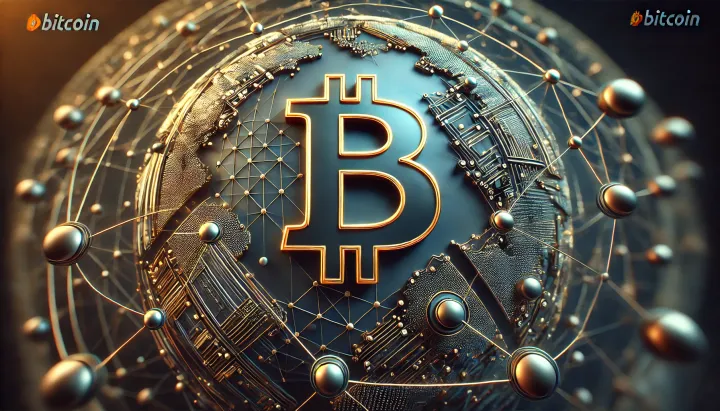Bitcoin Policy, Mining, and Energy Synergies
The December 20, 2024 episode of the Bitinfluencers podcast with Dennis Porter highlights the evolution of Bitcoin policy and mining innovation. Porter details his transition from defensive advocacy to proactive legislative efforts, emphasizing energy integration and financial resilience.

- My 'briefing notes' summarize the content of podcast episodes; they do not reflect my own views.
- They contain (1) a summary of podcast content, (2) potential information gaps, and (3) some speculative views on wider implications.
- Pay attention to broadcast dates (I often summarize older episodes)
- Some episodes I summarize may be sponsored: don't trust, verify, if the information you are looking for is to be used for decision-making.
Summary
The December 20, 2024 episode of the Bitinfluencers podcast with Dennis Porter highlights the evolution of Bitcoin policy and mining innovation. Porter details his transition from defensive advocacy to proactive legislative efforts, emphasizing energy integration and financial resilience. The discussion underscores challenges like taxation and market volatility alongside opportunities in grid balancing and strategic reserve formation.
Take-Home Messages
- Bitcoin Mining Innovation: Enhancing operational efficiency supports grid stability and cost-effective energy use.
- Legislative Reform Urgency: Updating taxation policies and enacting Bitcoin-friendly laws are essential for broader adoption.
- Strategic Reserve Potential: Establishing a Strategic Bitcoin Reserve can act as a financial shock absorber in turbulent times.
- Energy Integration Opportunity: Leveraging stranded energy through mining can bolster clean energy transitions.
- Global Policy Coordination: International regulatory alignment is key to sustaining Bitcoin’s transformative potential.
Overview
Dennis Porter outlines his journey from launching the Satoshi Action Fund in 2022 to becoming a leading advocate for Bitcoin-friendly legislation. He emphasizes a strategic shift from defensive policy to proactive legislative engagement aimed at securing Bitcoin’s future.
Porter recounts early operational challenges in Bitcoin mining, including issues with heat management, noise, and soaring power costs. His narrative illustrates how these hurdles spurred technological innovation and operational improvements.
The discussion further explores Bitcoin mining’s role in stabilizing energy grids by utilizing stranded energy and supporting clean energy initiatives. Porter uses real-world examples to highlight how mining operations have aided in critical energy emergencies.
He also addresses the evolving legislative landscape, focusing on hurdles such as capital gains taxation and market volatility, while promoting the establishment of a Strategic Bitcoin Reserve. The conversation reflects a call for cohesive global regulatory efforts and a long-term vision for Bitcoin’s socio-economic impact.
Stakeholder Perspectives
- Policymakers: Seek balanced legislation that fosters innovation while ensuring energy and financial stability.
- Bitcoin Miners: Prioritize operational efficiency, market resilience, and supportive regulatory frameworks.
- Energy Companies: Look to capitalize on stranded energy opportunities and improve grid integration.
- Environmental Advocates: Demand data-driven assessments of mining’s impact on clean energy transitions.
- Financial Institutions: Evaluate Bitcoin’s role as a strategic asset for enhancing economic stability.
Implications and Future Outlook
The discussions indicate that legislative reforms, especially tax adjustments and supportive policies, are critical to Bitcoin’s evolution as both an asset and a transactional medium. Enhanced policy frameworks will foster an environment that supports technological innovation and operational resilience in mining.
Integrating Bitcoin mining with energy grid management offers significant potential to optimize the use of stranded energy while promoting renewable energy. This integration not only boosts operational efficiency but also aligns with broader environmental and economic goals.
Global coordination on Bitcoin regulation is essential to address divergent national policies and foster widespread adoption. International collaboration can create a more predictable regulatory environment, benefiting stakeholders across the board.
Information Gaps
- What policy reforms are necessary to reduce the capital gains taxation burden on Bitcoin transactions? This question is critical because current taxation policies impede Bitcoin’s use as everyday money. Addressing this can unlock Bitcoin’s potential for broader adoption and transactional utility.
- What criteria should guide the establishment of a state or national Strategic Bitcoin Reserve? This inquiry is significant as it links directly to Bitcoin’s role as a financial shock absorber. Clear criteria will shape policies that stabilize financial systems and drive legislative support.
- What are the best methods to integrate Bitcoin mining with existing energy grid balancing strategies? This question is vital because optimizing grid integration can enhance energy efficiency and operational resilience. Effective strategies will support renewable energy initiatives and improve grid stability.
- How can legislative frameworks be designed to overcome political hurdles in passing Bitcoin-friendly laws? This question addresses the core challenge of converting advocacy into actionable policy. Robust frameworks are essential for creating a supportive regulatory environment for Bitcoin’s future.
- What evidence-based approaches can clarify the environmental impact of Bitcoin mining? This inquiry is important as environmental misconceptions threaten Bitcoin’s adoption and clean energy potential. Reliable, data-driven communication can reshape public and policymaker perceptions.
Broader Implications for Bitcoin
Bitcoin as a Financial Shock Absorber
Bitcoin’s integration into state and national financial strategies could provide a buffer against economic shocks. By establishing Strategic Bitcoin Reserves, governments can mitigate inflationary pressures and stabilize public finances. This approach could redefine asset management in an increasingly volatile economic landscape.
Energy Integration Innovation
Linking Bitcoin mining with energy grid management opens new avenues for reducing energy waste and enhancing renewable utilization. Mining operations can dynamically adjust to absorb excess energy, thus supporting grid reliability. This model may stimulate investments in both energy infrastructure and Bitcoin technology.
Global Regulatory Alignment
Coordinated international efforts are needed to harmonize Bitcoin policies across jurisdictions. A unified regulatory framework can reduce compliance complexities and foster global adoption. Such alignment will enhance cross-border financial integration and promote economic stability.
Decentralized Security and Self-Custody
Strengthening self-custody practices remains crucial for maintaining Bitcoin’s decentralized ethos. Robust security measures can protect user assets and foster trust in the system. These efforts support broader digital sovereignty and minimize reliance on centralized financial institutions.
Sustainable Mining and Clean Energy Transition
Optimizing Bitcoin mining to leverage stranded or renewable energy supports both environmental and economic goals. Sustainable mining practices can reduce carbon footprints and promote energy efficiency. This transition could drive innovation in clean energy technologies and stimulate green investments.



Comments ()